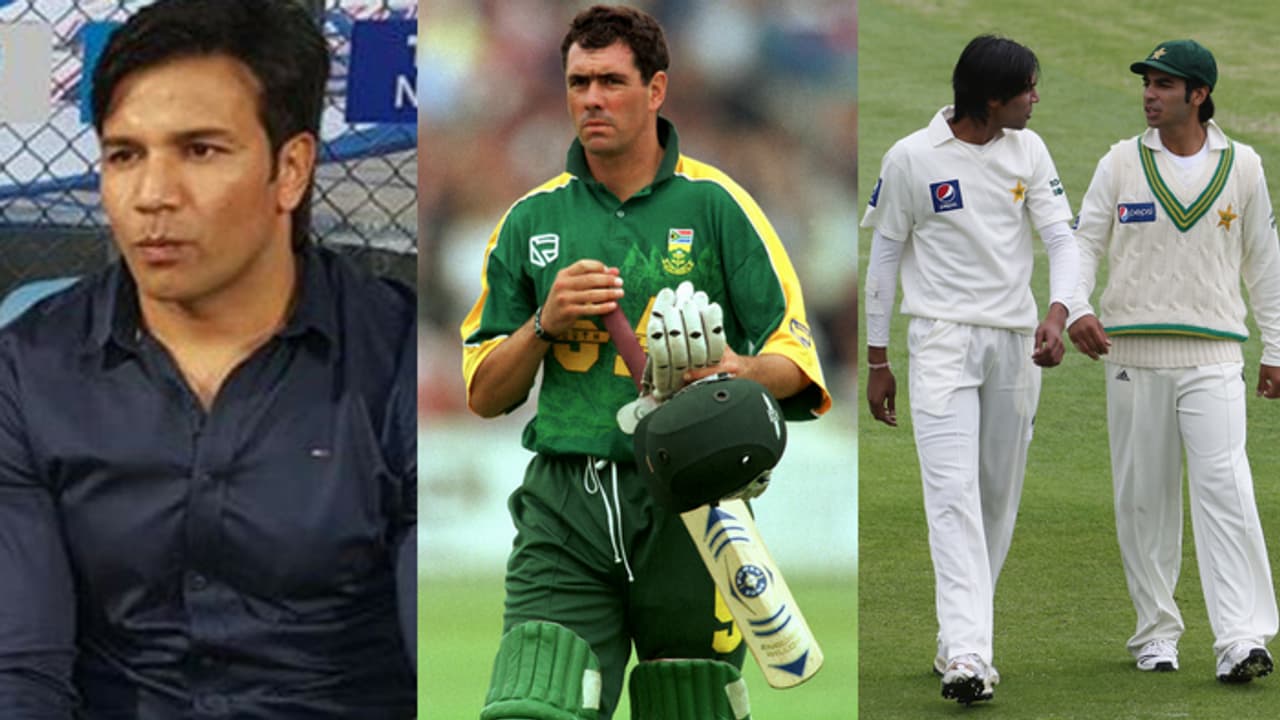In a game based largely on etiquette and the players emerging as role models of ideal behaviour, the instances listed below tarnished the game and have been a blot on cricket
The recent revelation of Indian Premier League (IPL) chairman Rajeev Shukla’s executive assistant Mohammad Akram Saifi asking for bribes from an Uttar Pradesh player has shocked the cricket world.
UP state team hopeful Rahul Sharma has accused Akram of asking for prostitutes in return for his selection. He also accused Akram of corruption and faking age certificates of the players. Post these allegations, Shukla’s man resigned and investigations are on.
This scandal however takes one back to the instances where the underbelly of the Gentleman’s Game was exposed.
In a game based largely on etiquette and the players emerging as role models of ideal behaviour, the instances listed below tarnished the game and have been a blot on cricket.
South Africa captain Hansie Cronje and others
In 2000, the greatest scandal to hit the history of cricket was unearthed. Hansie Cronje was one of the greatest and finest batsmen to represent South Africa. However, his reputation suffered a blow from which he would never recover when the Indian police charged him on 7 April 2000, stating that the Proteas captain had made contacts with bookmakers and was involved in match-fixing. While Cricket South Africa (CSA), then known as UCBSA (United Cricket Board of South Africa) vehemently defended the player calling the allegations baseless, Cronje’s admission to UCBSA chief Ali Bacher that he was “dishonest” unveiled the mystery behind the match-fixing scandal.
Cronje admitted to have received a bribe of $10,000-$15,000 from a London based bookmaker for “forecasting results” during South Africa’s tour to India in 2000. After his confessions and investigations into the match-fixing scandal, Cronje was banned for life.
In the scandal that ended the career of Cronje, his team-mate Herschelle Gibbs was also involved. He admitted to have agreed to receive a $15 000 offer, conveyed to him by Cronje, to give his wicket away for less than 20 runs in the fifth one-day game against India in Nagpur in March 2000. While he went on to score 74 off 53 balls and as a result never received the money, his attempts to cover up resulted was a blot on him for the rest of his career.
This scandal is one of the biggest because it also dragged in Indian biggies. Cronje accused Mohammad Azharuddin of introducing him to bookies in 1996 and that is when the noose of investigation tightened against the former Indian skipper. The Central Bureau of Investigation (CBI) took up the investigation, and while Azharuddin denied the charges at first, he later admitted to CBI that he fixed three ODI matches with the help of batsman Ajay Jadeja. The Board of Control for Cricket in India (BCCI) banned him for life.
Pakistan’s three match fixers
India’s neighbour Pakistan has had its fair share of the dark underbelly of the game. In November 2011, Salman Butt, Mohammad Asif and Mohammad Amir were found guilty in what was the most dramatic scandal of the decade. It was the now defunct “News of the World” that exposed the scandal. In a sting operation carried out by a reporter from the publication, where he posed as a businessman, bookie Mazhar Majeed was caught on tape describing how he was going to rig the game. The match in question was the 4th Test at Lord’s against England in 2010 and it was alleged that both Asif and Amir deliberately bowled no-balls at specific intervals during the match. Following the allegations, the three players were banned for terms between five and 10 years after facing trial in London and were awarded prison sentences ranging from six to 32 months.
